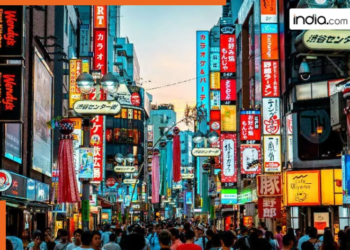Climate Change Threatens Singapore’s Tourism, City Adapts with Sustainable Measures
As global temperatures rise, Singapore, known for its iconic skyline and bustling hawker culture, may face significant challenges that could impact its thriving tourism industry. The recent National Climate Change Study pointed out that the city-state could experience hotter days, longer dry spells, and more intense rainfall, potentially deterring tourists.
Climate Projections and their Impact on Tourism
Experts predict that Singapore’s mean temperature could rise by up to 5 degrees Celsius by the end of the century. Very hot days where temperatures exceed 35 degrees Celsius could become more common, triggering changes in tourist activities, particularly those outdoors. The Mandai Wildlife Reserve, famed for its open-air animal attractions, could see animals retreating from the heat, thereby diminishing the allure of the open zoo experience. Additionally, Singapore’s acclaimed hawker culture might suffer as unbearable temperatures make outdoor dining less appealing, potentially leading to a shift towards more enclosed, air-conditioned spaces.
Adapting Infrastructure for a Warmer Future
Shopping areas like Orchard Road, a magnet for tourists, may need to adapt by investing in efficient cooling systems to cater to visitors seeking respite from the intense heat. At the same time, the threatening rise of sea levels, projected to increase by 0.23m to 1.15m by 2100, could erode low-lying coastal areas and reduce beach spaces. This could potentially impact beach tourism and disrupt natural habitats. With predictions of heavier rains and stronger winds, Singapore will need to build more resilient infrastructure to cope with the adverse effects of climate change.
Proactive Steps towards Sustainability
In response to these impending challenges, popular attractions like the Singapore Zoo, Bird Paradise, River Wonders, and Night Safari are implementing innovative measures such as sprinkler systems, ice treats for animals, and maintaining tree canopy cover to keep temperatures down. Hotels and other tourism businesses are also enhancing sustainability efforts, aligning with the preferences of environmentally conscious Gen Z tourists. Lastly, the Singaporean government has shown proactive initiative by investing in infrastructure upgrades to manage rainwater, demonstrating its commitment to mitigating the impact of climate change on its tourism sector.






